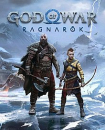I'd say it is mostly due to the fact that Nintendo has never had a home system sell like this before. Handheld consoles have lower attach rates, while the Wii sold a lot to non-gamers who bought casual games and not core Nintendo IP.
They've literally never had a home system sell like this before whose user base was mostly gamers. That, combined with the fact that many of their main IP are considered the best or among the best in their respective series: Odyssey, AC, Zelda, MK, Smash. Also since new AAA third party games have left Nintendo in favor of pushing graphics Nintendo first party games have now become the main drivers of system sales. The Switch library is mostly Nintendo games, indies, and older third party games that are bought for the ability to play anywhere. This all increases the amount of sales of big Nintendo games per owner since third parties don't put serious effort into taking a piece of the Nintendo gamer pie. Basically Nintendo first party games are like what GTA, CoD, and Fifa are to Playstations, in that the audience has been cultivated to all enjoy those games so they become the mega sellers, but unlike CoD and Fifa where you get a yearly release to buy a new iteration of the same game each year, you get one or two games in each series per system from Nintendo so they sell for years as evergreen titles.
Summary: it's a combo of best selling Nintendo home system ever that focuses on gamers, some of the best versions of each series, and third parties handed the reins over to Nintendo for them to dominate software sales alone.













































